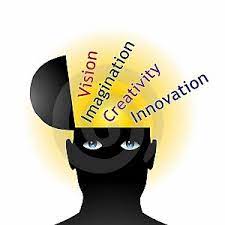Twelve Steps To Enhance And Preserve Your Memory
Twelve Steps to Enhance and Preserve Your Memory
One of the most worrisome aspects of the aging process is memory loss. Many people can handle the idea of losing some of their physical capacity but are absolutely horrified about their memory fading.
The goal of this article is to provide you with some simple tips that you can use to sharpen your memory and preserve your brain from cognitive decline. Whether you are twenty or eighty, these tips can help you stay at the top of your game!
Step One: Drink Alcohol in Moderation
Although heavy drinking can harm your memory, numerous studies have shown that moderate alcohol consumption can benefit your memory and cognitive function. This may seem surprising at first, but alcohol does have some anti-oxidant effects when used conscientiously, and this has been shown to benefit brain health.
Be careful not to abuse alcohol, though. Alcohol abuse has a clear negative impact on your brain, leading to immediate (albeit temporary) cognitive impairment. Long-term alcohol abuse can also impact the connections your neurons make with one another in your brain, preventing you from making memories and connections as quickly.
memories and connections as quickly.
But if you are smart with your drinking and can maintain moderate habits, there is ample evidence that light alcohol consumption can actually increase your cognitive ability.
Some recently released studies show that moderate drinkers outscore both hard drinkers and non-drinkers in specific clinical tests of cognition and memory.
Alcohol can also even reduce the risk of Alzheimer's disease. In one study conducted in France, researchers found that two daily glasses of wine reduced the risk of Alzheimer's by 45%!
Step Two: If You Are Suffering from Depression: Seek Help
Anything in your life that leads to chronic feelings of anger or anxiety can harm your memory. Your brain only has so many resources to allocate, and if your brain is fixated on feelings of anxiety and depression, it is pulling resources away from your memory.
Depression is the first psychiatric condition that can affect your memory and cognitive ability.
In many cases, the root cause of your memory issues can actually be the depression itself. One of the most extensive symptoms of Depression is a breakdown in your ability to concentrate.
The negative feelings that your consciousness generates remove your ability to concentrate on tasks that are actually important to you or important to your life. Depression can keep you from holding onto thoughts and prevent you from succeeding in school or work because it drains your focus.
One of the reasons why Depression causes these cognitive lapses is because Depression significantly increases cortisol production by the adrenal glands. Elevated cortisol levels enhance your brain's fight or flight response and hurt your higher-level brain functions.
Depression has also been correlated with a decrease in hippocampus size. The hippocampus is the central area of the brain regarding short-term memory, so Depression can diminish your ability to store new memories. One study, in particular, showed that significant depression could decrease the  size of the hippocampus by as much as fifteen percent.
size of the hippocampus by as much as fifteen percent.
The condition of depression also has an impact on the forms of memories that you can retain. Individuals with a predisposition toward depression are more likely to retain negative memories than positive ones, not because of conscious effort but because their brains are wired to do so.
Not all hope is lost, however. Studies have shown that medications that have been proven to combat depression, like SSRIs, can also restore the normal function of the hippocampus and its size.
Step Three: Stay Active
Although historically, philosophers and scientists have thought of the mind and the body as two different entities, it is now crystal clear that the body's and mind's health are interconnected. Physical activity can kick-start the brain and increase your capacity to retain memories.
Obesity, for example, has a chronic and negative impact on the brain and can even increase the risk of Alzheimer's disease and stroke. Exercise is one way the body takes care of plaque in the blood vessels and arteries.
If you remain excessively sedentary, the heart loses its ability to pump blood effectively due to a combination of built-up plaque and lack of stimulation. We all know that this plaque build-up increases the risk of heart attack significantly, but did you know that these same issues with cardiovascular health can reduce the efficiency of your memory and cognition?
The brain needs more fresh nutrients and oxygen than any other body organ. If cardiovascular conditions limit the amount of fresh, oxygenated blood that reaches your brain, then the brain will not be able to function at optimal capacity.
However, you don't have to exercise five days a week to improve your cognitive health. Just try to regularly do things that get your heart pumping a little bit. Start jogging occasionally, or even just walk or do some laps up and down the stairs. Study after study has shown that the more active a person is, the more it benefits their cognitive health.
Step Four: Association and Visualization
One way to increase the effectiveness of your memory on a day-to-day basis is to engage in visualization. This means that when you have something vital you know you need to remember, associate the memory with vivid imagery and use your imagination.
Engaging in the creative part of your brain increases the likelihood that you will store the memory more effectively.
Try to make memories actively and not passively expect yourself to store the memories. When someone tells you something important, don't just tell yourself you will remember it later; actively make the memory in your own mind.
Dwell on it, and dwell on the implication of the memory.
You can also effectively use word association to more effectively remember important (and not-so-important) details, obligations, and memories. Associate what you are trying to remember with another memory you already have stored so that when you think of one memory, it instantly recalls the other thing you are trying to remember.
By creating emphasis in your mind with visualization and association, you enhance or reinforce the thing you are trying to remember, improving your overall memory, and practicing good memory habits, which will help you in the future.
Step Five: Pay Attention
This may seem simple and obvious enough, but this is actually one of the most demanding aspects of memory for many people. Research has shown that converting short-term memory to long-term memory takes time. The average amount of time it takes to store a long-term memory is eight seconds. No matter how badly you want to remember something, you will have trouble keeping it if you do not hold it in your mind for at least eight seconds.
It's also important to do things deliberately if you intend on remembering them. Too often, we do things offhand and put too much faith in our memory. Do you ever forget where you put your keys? Or your wallet?
These sorts of mistakes happen because we simply toss things aside without actually engaging our brains to ensure we know where they are later when we need them.
we need them.
In situations where you know what you are experiencing is or might be very important in the future, reduce the distractions in your mind and take stock of what really matters. Put your phone away, take your mind off the television, and engage.
Step Six: Repetition
One helpful way to store memories more effectively is to utilize repetition. When you meet someone for the first time, repeat their name back to them both when you are first introduced and when you depart.
You can use repetition for common lapses in memory as well. Whenever you do something like put your keys away, remind yourself immediately where you placed them.
This may sound weird, but by actively engaging your brain when you act, you all but ensure that you will remember them later.
This can happen with names as well. Always take the time to check yourself whenever you meet a new person mentally.
It can be easy to forget the name of someone you like and get along with because you spend so much time thinking about the conversation and the social cues that you forget to remember his or her name. This happens more often than you'd think, and it's embarrassing!
Step Seven: Chunking
Chunking is one of the most effective ways to store complex memories. Our brains only have a limited ability to store a certain amount of items at a time. For example, our brains only really have the capability to remember an average of seven numbers in sequence.
This is one reason why credit card numbers are sixteen, and social security numbers are nine: They are longer than most people's brains are equipped to handle.
One way to remember long numbers or other forms of information is through the technique known as chunking. Chunking is when you convert simple information into slightly more complex relational information.
Essentially, you are turning two small memories into one more significant memory in which the relationship between the two items enhances your storage capacity.
With numbers, for example, it may be challenging to remember a phone number, especially if it is from an area code you are unfamiliar with. Say the number is (256) 998-2356. You can combine the ten digits into three distinct memories with this number.
You can remember that 256 is a typical number of megabytes for flash drives, 998 is two less than 1000, and the last four digits are 23456 without the four.
You can also use this strategy to remember things other than numbers. Say, if you have to remember a group of people's names, you can associate them with each other based on the first letters of their name or group them together by where you met them.
You can also use this to commit your grocery list to memory. Rather than think about everything you need as soon as you go in, categorize your needs, and remember small groups of items as you enter different store sections.
Step Eight: Method of Loci
Another effective means to enhance your memory is remembering things by associating them with their location when you last saw them. One of the most prominent examples is when teachers remember their students' names.
Over time, all of the students tend to settle into a preferred seating arrangement, and the teacher can remember a person's name more effectively when they stay in the same spot week in and week out. When someone is absent, they simply have to reconnect the empty seat with the person usually sitting in it.
This also works well with remembering directions and the location of specific destinations. Some people remember most effectively by following street  names and addresses, while others find their way around the world primarily by utilizing landmarks
names and addresses, while others find their way around the world primarily by utilizing landmarks
. Landmark navigation is an explicit form of using the Method of Loci for memory. Simply by seeing an object or intermediate location, you can remember where to go next by associating the step in the direction with the location where the turn is made.
Step Nine: Take Time to Take it Easy
Although your brain thrives on activity, it can simultaneously overwork your mind. To prevent mental burnout, allocate daily time to things and people you enjoy. Like your body, your brain needs time to wind down and recover from activity to maintain optimal function.
Being overworked or suffering from excessive anxiety can reduce your focus and prevent you from keeping your mind in tip-top shape. As we mentioned earlier, your body and brain only have so much energy, and if you work yourself ragged or have a habit of letting your mind run around in circles inside your head, you will be too exhausted to keep your memory strong.
It doesn't matter how you do it. You can exercise. You can meditate. You can go hang out with your friends. Just regularly arrange for a time for your mind to unwind.
Step Ten: Sleep to Enhance your Memory
Sleep is perhaps the most crucial time of the day for your memory. Even though your brain is busy gathering new memories during the day, it is at night when your body cements those memories that you have prepared for long-term storage. When you sleep, your brain goes through a process known as memory consolidation.
Optimal memory consolidation is dependent upon healthy and deep sleep. When you commit yourself to an abridged sleep schedule or toss and turn at night, you prevent your brain from optimally storing the memories you have formed.
This can affect all aspects of your life. Poor sleep can cause you to struggle in exams and keep you from functioning at your peak while you are at work. It can also prevent you from storing memories in your personal life and drain you of the mental energy you need to remember the little things, like birthdays and anniversaries.
Step Eleven: Eat Well to Improve your Memory
As we mentioned, your brain functions at its best when it has all the fuel needed. Exercise helps circulate blood to the brain, and a proper diet ensures that blood is full of nutrients that your brain can use for optimization.
There are a number of foods in particular that have an impact on memory and cognition:
Omega-3s Studies have shown that Omega-3s have a significant impact on cognitive function. These nutrients are found in high concentrations in fish, including sardines, halibut, tuna, and salmon. Foods such as flaxseed, spinach, walnuts, and pinto beans also have a lot of Omega-3s.
Fruits and Veggies Vegetables are great because they pack lots of nutrition in a small number of calories. Most fruits and vegetables are very good for you because they are loaded with antioxidants that eliminate your brain's free radicals and help streamline your normal, healthy function.
The best foods for your brain are deep and dark green vegetables and fruits and veggies that are very vibrant in color, like bell peppers, tomatoes, and watermelon.
Green Tea Green Tea is loaded with particular anti-oxidants known as polyphenols. There is evidence that Green Tea can enhance both memory and cognition while also supplying some applicable Anti-Aging Benefits as well.
Wine and Grape Juice These beverages, as well as beverages made from other dark fruits, such as blackberries or cranberries, are high in Resveratrol, a phytonutrient that has both been linked to improved blood flow as well as a reduced risk of Alzheimer's Disease.
Control Saturated Fat and Calorie Consumption A poor diet that breaks down the cardiovascular system's health will have immediate and long-term effects on the health and function of the brain. Diets full of saturated fat and calories have been linked to reduced cognitive function and an increased risk of dementia. Avoiding bad foods is just as important as consuming healthy foods when it comes to the health of your brain.
Step Twelve: Practice, Practice, Practice
In order to preserve your memory and cognitive ability, the best thing you can do is exercise your faculties as much as possible. This is a significant issue both once people graduate from school and when they retire.
You are so used to regularly exercising your brain in a particular way that when you are no longer obligated to do so, you start to let your brain off the  hook.
hook.
This is one reason so many people seem to lose their edge when they retire. They don't have the outside motivation prodding them to keep their mind active. It's the same with physical exercise.
How many professional athletes or college athletes have you seen go completely soft as soon as they aren't working out for their career? This happens to your brain when you suddenly have significantly less responsibility in your life and don't make the effort to keep your memory strong.
To stay as sharp as possible, make sure you find activities that can keep your brain hard at work on a daily basis. Volunteer, tutor, or find social groups that encourage you to think on your feet.
Make your memory a game, and keep your brain working each and every day. You will keep your mind younger and more active by making an active and conscious effort to preserve your mental sharpness!
- 0001) What Is Adrenal Fatigue [Last Updated On: May 20th, 2025] [Originally Added On: October 23rd, 2020]
- 0002) Understanding Thyroid Function And Diagnosing Thyroid Issues [Last Updated On: May 21st, 2025] [Originally Added On: October 24th, 2020]
- 0003) The Psychological And Physiological Effects Of Serotonin [Last Updated On: January 7th, 2026] [Originally Added On: October 26th, 2020]
- 0004) The Facts About Psoriasis: Symptoms And Causes [Last Updated On: January 6th, 2026] [Originally Added On: October 27th, 2020]
- 0005) The Facts About Acromegaly [Last Updated On: May 24th, 2025] [Originally Added On: October 28th, 2020]
- 0006) The Effects Of Hgh Deficiency Upon One Of A Pair Of Twins [Last Updated On: January 5th, 2026] [Originally Added On: October 29th, 2020]
- 0007) Resveratrol Anti-aging Supplementation For Longevity [Last Updated On: May 19th, 2025] [Originally Added On: October 30th, 2020]
- 0008) Sermorelin Acetate Injections With Ghrp-6 [Last Updated On: February 18th, 2025] [Originally Added On: October 31st, 2020]
- 0009) Melatonin The Sleep Hormone How It Impacts Your Health [Last Updated On: May 26th, 2025] [Originally Added On: November 1st, 2020]
- 0010) Mark Cuban To Fund Study On Healing Power Of Hgh [Last Updated On: May 27th, 2025] [Originally Added On: November 2nd, 2020]
- 0011) Mark Cuban Advocates For Hgh As A Rehab And Recovery Tool [Last Updated On: January 4th, 2026] [Originally Added On: November 3rd, 2020]
- 0012) Leptin Hormone Guide: The Effects Of The Satiety Hormone [Last Updated On: January 3rd, 2026] [Originally Added On: November 4th, 2020]
- 0013) Human Growth Hormone Deficiency Impact On Sleeping Habits [Last Updated On: January 2nd, 2026] [Originally Added On: November 5th, 2020]
- 0014) Human Growth Hormone And Liver Regeneration [Last Updated On: January 1st, 2026] [Originally Added On: November 6th, 2020]
- 0015) Hgh Treatment For Fatty Liver Disease On The Horizon [Last Updated On: February 17th, 2025] [Originally Added On: November 7th, 2020]
- 0016) Your Current HGH Level [Last Updated On: March 28th, 2025] [Originally Added On: November 8th, 2020]
- 0017) Ghrelin The Hunger Hormone [Last Updated On: December 31st, 2025] [Originally Added On: November 9th, 2020]
- 0018) Enclomiphene Citrate Andropause Treatment Up For Fda Approval [Last Updated On: December 30th, 2025] [Originally Added On: November 10th, 2020]
- 0019) Dopamine Pleasure Hormone And So Much More [Last Updated On: April 26th, 2025] [Originally Added On: November 11th, 2020]
- 0020) Diabetes Cure On The Horizon [Last Updated On: December 29th, 2025] [Originally Added On: November 12th, 2020]
- 0021) Boost Metabolism To Lose Weight And Maintain Weight Loss [Last Updated On: December 28th, 2025] [Originally Added On: November 13th, 2020]
- 0022) Andropause A Mid-life Hormone Crisis [Last Updated On: February 18th, 2025] [Originally Added On: November 14th, 2020]
- 0023) SOGROYA INJECTIONS FOR HUMAN GROWTH HORMONE DEFICIENCY [Last Updated On: February 19th, 2025] [Originally Added On: March 24th, 2021]
- 0024) How Do High and Low Estrogen Impact Male Health and Wellness? [Last Updated On: February 9th, 2025] [Originally Added On: April 2nd, 2021]
- 0025) The Effects Of Hormone Imbalance On Belly Fat [Last Updated On: February 18th, 2025] [Originally Added On: May 8th, 2021]
- 0026) Could Sunlight Help Remove Rogue Hormones from the Water Supply? [Last Updated On: February 20th, 2025] [Originally Added On: May 29th, 2021]
- 0027) Weekly HGH Therapy Just as Effective as Daily Injections [Last Updated On: April 4th, 2025] [Originally Added On: June 18th, 2021]
- 0028) DHEA and Testosterone: A winning team! [Last Updated On: February 14th, 2025] [Originally Added On: January 19th, 2022]
- 0029) Animal Research Discovers Link Between Exercise, HGH, and Cognitive Ability [Last Updated On: February 14th, 2025] [Originally Added On: May 20th, 2022]
- 0030) Weekly Hormone Treatments for Adult HGH Deficiency with Sogroya [Last Updated On: February 18th, 2025] [Originally Added On: June 14th, 2022]
- 0031) Ancient Critters Made Human Hormone System What It Is Today [Last Updated On: March 13th, 2025] [Originally Added On: June 26th, 2022]
- 0032) How Substance Abuse Can Affect Your Hormone Levels [Last Updated On: March 16th, 2025] [Originally Added On: August 4th, 2022]
- 0033) A Holistic Approach to Health and Water Safety [Last Updated On: January 28th, 2026] [Originally Added On: February 7th, 2025]
- 0034) Understanding the Role of Sogroya in Adult Human Growth Hormone (HGH) Deficiency Treatment [Last Updated On: February 12th, 2025] [Originally Added On: February 11th, 2025]
- 0035) Andropause: An Examination of Mid-life Hormonal Shifts in Males [Last Updated On: February 16th, 2025] [Originally Added On: February 13th, 2025]
- 0036) Sermorelin Acetate Therapy: A Comprehensive Insight into its Benefits with GHRP-6 [Last Updated On: February 17th, 2025] [Originally Added On: February 14th, 2025]
- 0037) The Dynamic Duo of Male Vitality: Testosterone and DHEA [Last Updated On: February 14th, 2025] [Originally Added On: February 14th, 2025]
Word Count: 2726






